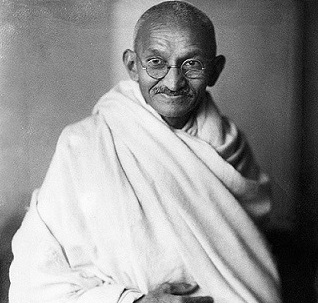Last week, my blog was about finding our better angels in the worst of times, a term Abraham Lincoln coined in his first inaugural address. I am familiar with my darker ones, anger, impatience, and vanity among them. Less aggressive are the purer spirits. Sometimes, when I’ve been wounded by a person’s remark, forgiveness turns shy, and I have to wrestle it from the shadows.
How to keep and nurture these better angels is a puzzle. Where do they come from, for example? Are they learned? They seem less innate than my darker passions. And yet…when I greet a friend who is depressed, my desire to help is immediate. For that, I might credit my kindergarten teacher, Mrs. Debrolet. She taught her students, their petal-like faces staring up at her from small chairs, to, “Always be kind.” I hope that impulse is native to the human spirit. It would be unjust to think that hate is natural and that love must be taught.
Philip Tetlock, a psychologist uses a different term for better angels. He calls them sacred values, principles that are beyond the realm of negotiation. (“Notes On A Strange World” by Massimo Polidoro, Skeptical Inquirer, May/June 2025, pg. 15.) The belief that human life is sacred is one example. Nelson Mandela embraced this value so fully that he was willing to endure years of imprisonment rather than agree that some men were more equal than others.
Writer Massimo Polidoro describes our better angels as instincts–a collective recognition of what is vital for sustaining trust, meaning, and unity in the face of life’s most difficult choices. (Ibid, pg. 15.)
Our “truths” derive from these core values, though they may vary among us. I respect human life, for example, but I also support abortion rights. My Evangelical sisters seem more philosophically consistent. For them, personhood arrives at the moment of conception. Abortion, therefore, is wrong.
I do not accept their view because I make a distinction between what’s real and what’s potential. By the same logic, I make a distinction between an apple tree and an apple seed. Even so, both truths are born of an innate reverence for human life, a necessary value that perpetuates the species.
Expressions of sacred values do differ. Ask Elan Musk if he respects human life and I am certain he will say he does. Yet Bill Gates, a fellow billionaire who devotes his life to philanthropy, scratches his head. How can Musk, he wonders, be a man of conscience when his decisions to keep food and medicine from the world’s poorest populations will make millions of deaths inevitable?
Benjamin Netanyahu’s behavior also puzzles the mind. To bring peace to Israel, he is intent on destroying Palestine. Yet where in recent history does this strategy succeed? Did Adolf Hitler win World War II? Has Vladimir Putin conquered Ukraine in three days? If Netanyahu believes slaughter on a massive scale is the way to salvation, he has lost his sanity.
Some worry that Donald Trump’s ambition to crown himself a king is another form of madness. Several experts agree that the president shows signs of dementia. Dementia or not, he has a flawed memory. Twice, he has taken the oath of the President of the United States–a pledge to preserve, protect, and defend the Constitution. Yet too easily, he forgets his promise.
A third of voters seem willing to accept Trump’s preference to be a king. A majority, however, prefer the status quo: three co-equal branches of government each with a set of plenary powers. Even so, Trump continues to violate the Constitution, helped by the Republican Party that fears him. Among his most serious offenses, he has:
. Condoned “disappearing” people off our streets and imprisoning them in a foreign country without due process.
.Pardoned felons convicted of attempting to overthrow an election.
.Sold tours of the White House at exorbitant prices, the proceeds of which go into his pocket.
.Shown a flagrant and dangerous indifference to truth.
Mahatma Gandhi once said that our values become our destiny. If he is right, then those we hold sacred, we must defend with our outrage. The standard for resistance is simple. Does what’s being proposed promote or hinder trust? Without trust, there can be no civilization, and we are no more than beasts of the field. Another value, one that Mrs. Debrolet would exhort us to weigh, is the kindness of each action.
***Special Notice. Due to a computer upgrade, the next blog will appear Thursday, June 12, 2025,)
BOYCOTT TESLA

